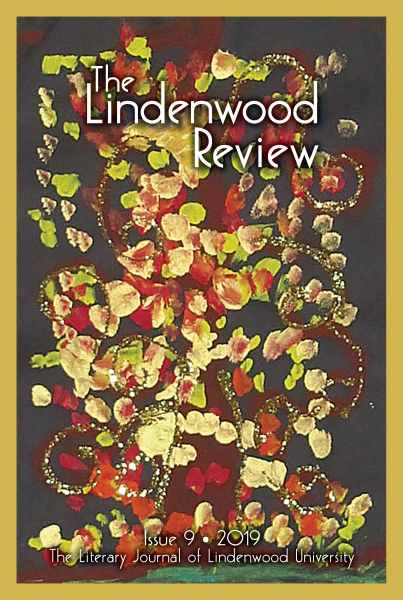CREATIVE NONFICTION STORY. 1400 WORDS. FIRST DRAFTED: AUGUST, 1996.
ORIGINALLY PUBLISHED IN THE LINDENWOOD REVIEW (US) MAY 1, 2019.
WATCH THE VIDEO READING OF THIS STORY.
On that sunny, summer afternoon when I should have died, I was eleven, almost twelve, and about to start seventh grade at junior high.
This is my first published piece of Creative Nonfiction. It appears in issue number 9 of The Lindenwood Review, the literary journal of Lindenwood University in St. Charles, Missouri, produced by the university’s MFA in Writing program. Originally a chapter in a long-abandoned novel, I’ve tinkered with this story almost twenty-three years before arriving at the latest version. The incident described happened (almost happened) in the summer of 1980.
Gasoline
On that sunny, summer afternoon when I should have died, I was eleven, almost twelve, and about to start seventh grade at junior high. In other words, I was old enough to know better.
In July, a classmate introduced me to a public school kid named Mark. Both boys cut grass for their neighbour, Don Zanetti, who paid them five dollars an hour – a lot of money in those days. He could afford it. The subdivision where they lived had been Zanetti’s vineyard until he sold everything except two acres overlooking Martindale Pond.
One evening Mark stayed late to finish cutting grass, so Zanetti gave him twenty dollars and told him to split it with the other boy. Since Mark did more work, he kept fifteen and a fight started when he handed over the remaining five. I thought he was being fair but his mistake was mentioning how much he kept for himself.
Because I sided with Mark, I was his best friend once the fight was over. Neither of us spoke to the other boy again. From then on, Mark cut grass alone.
“Want to go fishing with me?”
I agreed, thinking my new friend meant at the lake but Mark had permission to fish on the pond behind Zanetti’s house. He needed baby minnows to feed his oscars, two large, brown and orange fish kept in an aquarium in Mark’s bedroom.
Early one morning, we met at Mark’s house. He handed me a large white bucket, while he carried an old broomstick with a dented strainer tied to one end. Setting off, we turned at the corner and cut through the estate. Pear trees shaded the long driveway and grape vines clung to the fences.
Between the house and garage, a grassy slope led to the water’s edge. Branches from a willow tree blanketed the flat roof of a small, unpainted, wooden boathouse that never contained any boats. In fact, the only “boats” in sight were rowing shells from Henley Island, quite a distance away.
The minnow’s tiny, translucent bodies were almost invisible. Crouching, we stared into brownish-green water until their minute black eyes gave them away. Once they came into focus, hundreds of miniscule fish appeared, zigzagging in unison as though their movements were meticulously choreographed.
Filling the bucket with pond water caught half a dozen fish but the strainer was more effective. Mark slipped it below the surface, frightening the skittish minnows away, and held it steady until they returned. With a quick jerk the strainer was in the air, looking empty, until he banged it against the rim of the bucket. Dozens of little black eyes appeared. Within twenty minutes we had enough minnows to feed Mark’s oscars for a week.
According to Mark, the pond was filled with bigger fish. “Real fish,” he called them. Carp, catfish, trout. He said we could catch them with make-shift fishing rods, so we found line and hooks in a tackle box in Mark’s garage and picked two long sticks off the ground by the shoreline.
Worms abounded near the boathouse. Mark plucked a fat, slimy one and impaled it, twice, on his fishhook. “That’s to be sure it won’t fall off.”
I speared a worm crawling on the ground and tried piercing its wiggling form again but it was too quick. Squeamish, unwilling to touch it, I figured that would have to do.
Climbing onto the boathouse roof, we brushed away willow branches and sat at the far end, dangling our legs over the edge. For an uneventful half hour, we waited in the heat, staring into murky water, then gave up and never tried again.
I’m not sure who thought of it but we began making daily trips to the Avondale variety store on Ontario Street. We bought E.B. Eddy wooden matchsticks. Thirty per box. Or maybe fifty. With the matches, we built miniature log cabins inside the boathouse, then set them aflame to watch them burn. Twenty seconds later they were charred ruins. Brushing these into the water left a smear of ash across our palms and the boathouse floor.
Good value for five cents.
Soon we were buying matches by the carton – which was cheaper. Our log houses grew taller and more complex. I came up with the idea of adding a lean-to and Mark tried an overhanging porch roof, supported by matchstick columns. The simple, square houses blackened and shrank as they burned but the overhangs collapsed and broke away, increasing the devastation.
By day’s end, the boathouse smelled like burnt seaweed and our hair reeked of smoke. My parents probably thought I’d taken up cigarettes.
Later, we started playing in Zanetti’s hot, stuffy garage. The roll-up door was closed but the smaller, hinged door didn’t lock. Nothing but junk was inside – no car, just scraps of wood, the lawnmower, assorted tools, broken furniture, and a headless, limbless, greenish-blue dressmaker’s dummy, which I particularly remember because her breasts were the first I ever touched. Mark suggested it, so I tentatively caressed the swell of her bosom.
“Not like that, you pansy.” Mark clawed her left breast as though tearing meat from a roast pig. Unsatisfied, he pushed her to the ground, claiming real women were softer. I believed him but suspected they’d prefer a gentler touch.
The plastic gas can sat in a corner, beside a stackable metal chair with a bent leg. Less than half full, it was red with a black cap and long yellow spout. This, not the dressmaker’s dummy, was our reason for entering the garage.
Mark poured gas on the concrete floor, making a wet spot the diameter of a softball. When he threw a lit match, the fluid burst into flame, blue at the bottom, orange at the top. The smoke was black and brown.
The pure, pungent odour of gasoline permeated the air, settling into our hair and clothes. It was an intoxicant, yet the sound appealed most. Pwoofff. Loud and sudden. We were surprised it made any noise at all.
Gasoline-soaked circles grew larger – the diameter of a Frisbee, a basketball, a beach ball. Flames grew higher, hotter, brighter. The pwoofff got louder.
After the fires burned they left rings on the floor, slightly darker than the rest of the concrete – almost invisible unless you knew they were there. Unlike minnows, no little black eyes gave them away.
We never burned the same place twice. Mark’s idea. He believed we were doing Zanetti a favour by igniting a flame over every inch of concrete.
“This cleans the floor,” he explained, wiping sweat from his forehead with the back of his hand. “It burns off all the dust and crap.”
“Right,” I said, pretending I’d known all along.
To keep the novelty from wearing thin, we became more daring. Mark sat in one corner soaking matches in fuel, while I splashed a hula hoop-sized pool of gasoline and set it alight.
In a move of staggering stupidity, I lifted the canister above the blaze, tilted it and poured some more. Stepping back to avoid the burst of light and heat, I looked at the gas can and noticed a line of flame had climbed the liquid stream, or maybe the fire leapt that high – I couldn’t be sure – but the yellow nozzle was burning. Astonished, my instinct was to blow but the tiny flame persisted.
In that moment of terror, time stood still as thought impulses flashed like lightning through my brain. I knew what must happen, and saw it in a millisecond, though it scrolled by with casual determination, showing me the horror as it would’ve appeared outside the garage.
On a quiet, sunny day, a small cinder block building with a green, shallow-pitched roof is rocked by an explosion as a ball of fire – black, red, orange and loud – erupts through the open door. Two figures emerge, their human forms barely recognizable beneath coats of flame. Running, they cross the pavement. One stumbles and rolls beneath a pear tree but is still ablaze when movement stops. The other runs downhill, toward the pond, collapsing half way there. At regular intervals behind the body, burning patches show where footsteps set fire to dry grass.
Miraculously, that vision never materialized. By some fateful mystery, I was granted time to blow again, hard as I could. The flame went out. Instead of dying, I stood there, shaking, sweating, staring at the nozzle, wondering why there was no sudden blast.
But what could I have known when I was eleven, almost twelve? Not to play with gasoline, for one thing. But that was all. I was as ignorant of death as I was of life.
The End


